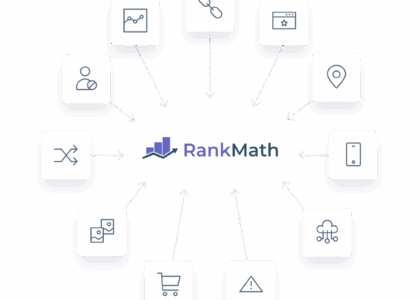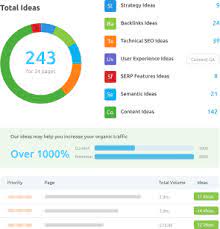The Power of Custom Software Solutions
In today’s fast-paced and competitive business environment, off-the-shelf software solutions may not always meet the unique needs and requirements of every organisation. This is where custom software development comes into play, offering tailored solutions that address specific challenges and drive growth.
Benefits of Custom Software
Custom software is designed to fit the exact specifications of a business, providing a range of benefits:
- Scalability: Custom software can be easily scaled up or down to accommodate the changing needs of a business as it grows.
- Enhanced Efficiency: Tailored software streamlines processes, improves productivity, and reduces manual errors.
- Cost-Effectiveness: While initial development costs may be higher, custom software can lead to long-term cost savings by eliminating the need for multiple off-the-shelf solutions.
- Competitive Advantage: Custom software gives businesses a competitive edge by providing unique features that differentiate them from competitors.
- Data Security: With custom software, businesses can implement robust security measures tailored to their specific data protection needs.
Why Choose Custom Software Development?
Custom software development offers a tailored approach that aligns with the goals and objectives of a business. By collaborating with experienced developers, organisations can create solutions that address their specific pain points and drive innovation.
The Process of Custom Software Development
The process of developing custom software involves several key stages:
- Requirement Analysis: Understanding the client’s needs and defining project goals.
- Design & Planning: Creating a blueprint for the software architecture and functionality.
- Development & Testing: Building the software followed by rigorous testing to ensure quality.
- Deployment & Maintenance: Implementing the software and providing ongoing support and updates as needed.
In Conclusion
Custom software solutions offer businesses a strategic advantage by providing tailored tools that enhance efficiency, productivity, and competitiveness. By investing in custom software development, organisations can unlock new opportunities for growth and innovation in today’s dynamic market landscape.
Understanding Custom Software: Common Questions and Key Concepts
- What is customization of software?
- What is the name of custom software?
- What are examples of custom software?
- What is meant by custom software?
- What is custom and generic software?
- What are the examples of custom software?
- What is a custom written software?
What is customization of software?
Customization of software refers to the process of tailoring a software solution to meet specific requirements or preferences of a user or organisation. This involves modifying the features, functionality, and user interface of the software to align with the unique needs and workflows of the end-user. By customizing software, users can enhance efficiency, improve user experience, and address specific challenges that off-the-shelf solutions may not adequately cater to. Customization allows for greater flexibility and personalisation, ultimately leading to a more tailored and effective software solution for individual users or businesses.
What is the name of custom software?
When referring to custom software, it is important to understand that the term “custom software” itself does not denote a specific name or title for the software. Custom software is a bespoke solution tailored to meet the unique requirements of a particular business or organisation. The name or title of custom software typically reflects its purpose, functionality, or the specific needs it addresses within the context of the client’s operations. Custom software is designed and developed with a focus on providing a personalised solution that aligns closely with the client’s objectives and business processes.
What are examples of custom software?
Custom software encompasses a wide range of applications tailored to meet specific business needs. Examples of custom software include customer relationship management (CRM) systems designed to centralise and manage customer interactions, inventory management software customised to track and optimise stock levels, and bespoke project management tools that streamline collaboration and task allocation within a team. Additionally, custom accounting software can be developed to automate financial processes and generate customised reports, while specialised e-commerce platforms can be created to provide unique shopping experiences for customers. These examples highlight the versatility and effectiveness of custom software in addressing diverse requirements across various industries.
What is meant by custom software?
Custom software refers to bespoke applications or programs that are specifically designed and developed to meet the unique needs and requirements of a particular individual, business, or organisation. Unlike off-the-shelf software solutions that offer a standard set of features for a broad user base, custom software is tailored to address specific challenges, streamline processes, and provide personalised functionalities that align with the goals and objectives of the client. By customising every aspect of the software development process, including design, functionality, and user experience, custom software ensures a precise fit for the user’s requirements, offering enhanced efficiency, scalability, and competitive advantage.
What is custom and generic software?
Custom software refers to bespoke solutions that are specifically tailored to meet the unique requirements of a particular business or organisation. In contrast, generic software, also known as off-the-shelf software, is pre-built and designed to cater to a broader audience with more general needs. Custom software offers the flexibility and advantage of being customised to fit the exact specifications and workflows of a company, providing personalised features and functionalities that can address specific challenges. On the other hand, generic software may offer standard features that are suitable for a wide range of users but may not fully align with the individual needs and processes of a specific organisation.
What are the examples of custom software?
When considering examples of custom software, it’s important to note that the possibilities are vast and diverse. Custom software solutions can range from bespoke customer relationship management (CRM) systems tailored to specific business needs to intricate inventory management software designed to streamline operations. Other examples include personalised e-commerce platforms, unique data analytics tools, and customised project management applications. Each custom software example is crafted to address the distinct requirements of the organisation, demonstrating the flexibility and effectiveness of tailored solutions in meeting various business challenges.
What is a custom written software?
A custom written software refers to a bespoke software solution that is specifically designed and developed to meet the unique requirements of a particular individual or organisation. Unlike off-the-shelf software, which offers a one-size-fits-all approach, custom written software is tailored to address specific challenges, processes, and objectives of the client. By collaborating with experienced developers, businesses can create custom software that aligns seamlessly with their operations, leading to enhanced efficiency, improved productivity, and a competitive edge in the market.






